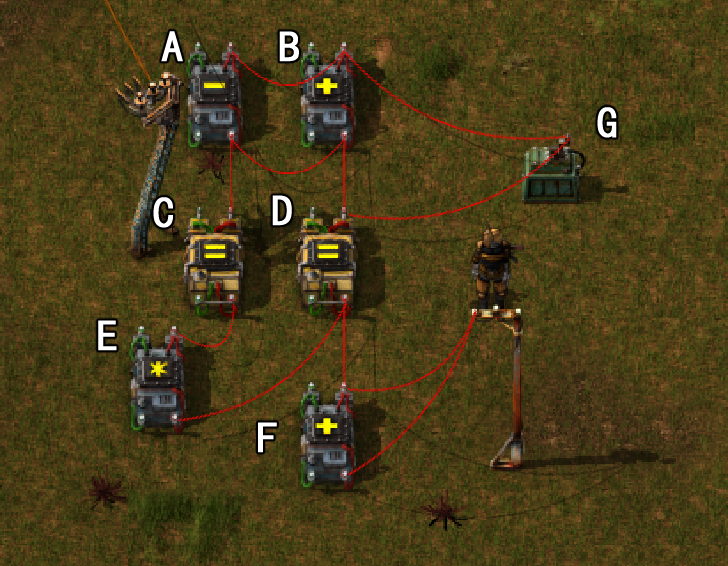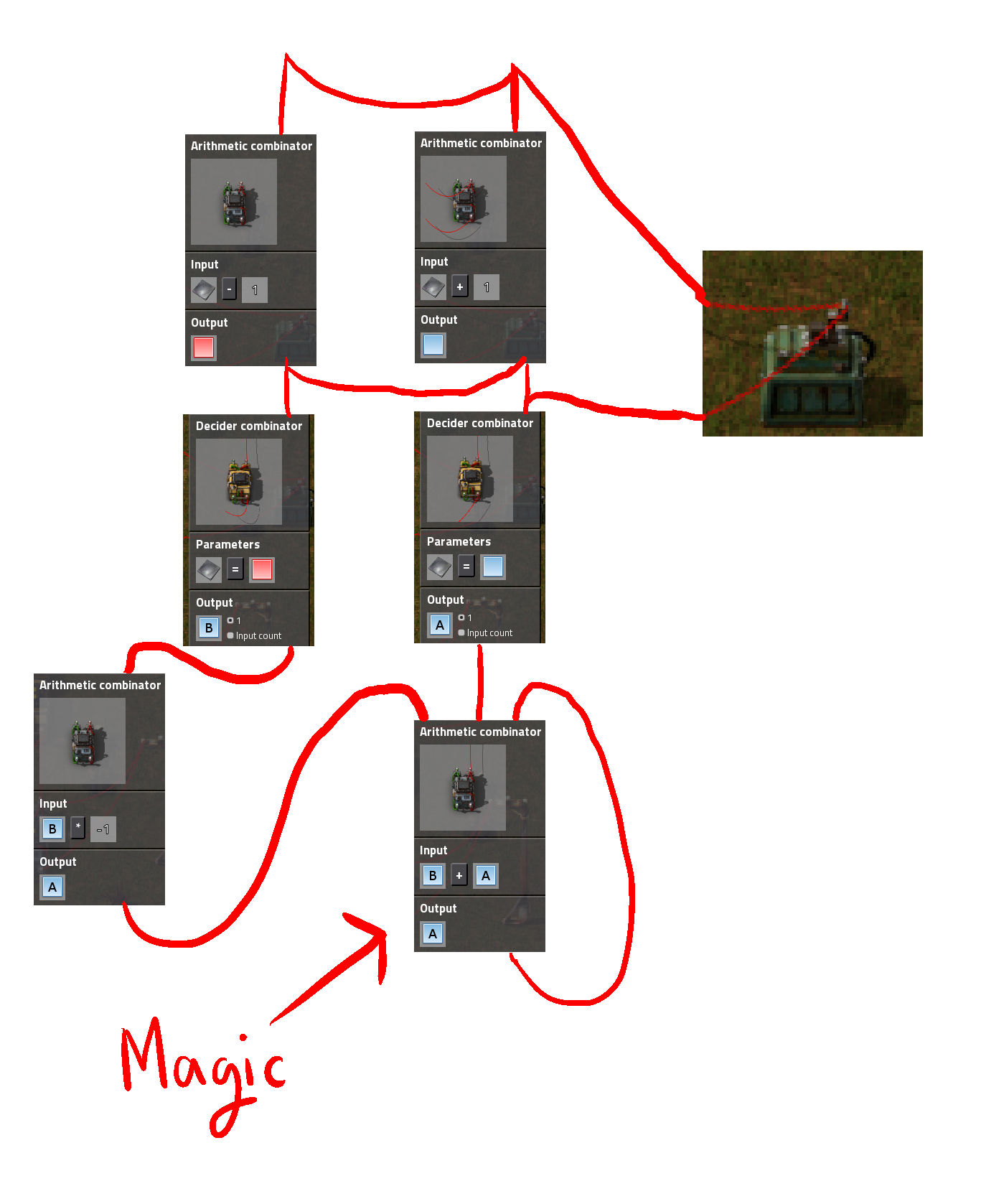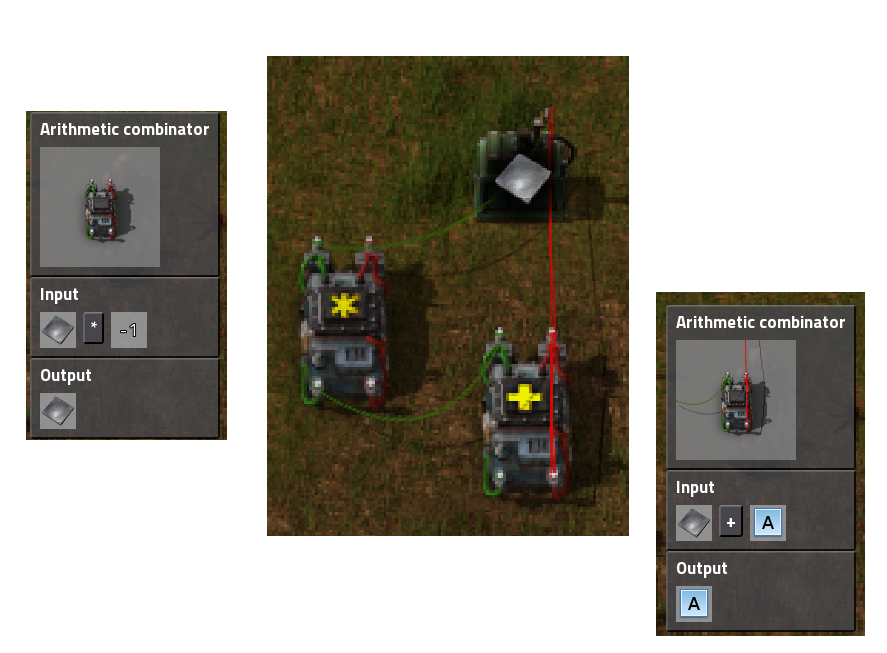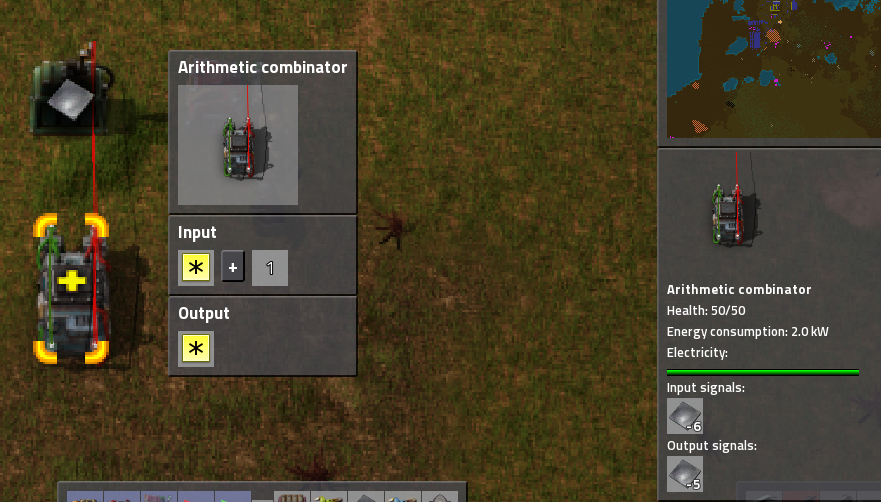

Right so short summary of what's going on is in this example:
The smart chest receives 1 iron. This triggers D to send a quick short pulse to F which increments itself by 1.
The smart chest loses 1 iron. This triggers C to send a quick short pulse that is negated by E in order to decrement F.
You can use this to do things such as keep track of how many items are being put on conveyor belts. There are other uses I am sure but this is the reason I bothered to figure this out. Hope it helps.
Anyways more complicated explanation of what's going on. Right so the arithmetic combinator only updates itself whenever a external value changes. Thus whenever it receives a new input which is fed into itself which only gets read once and thus doesn't cause a infinite loop. Allowing it to store a value inside of itself even if all inputs are removed. Input B doesn't get used at all.
So B and D are examining the value of G. Whenever G gets one additional iron, for a split second the comparison suddenly is true sending a value of 1 which gets mathed by F.
Hopes this helps.




